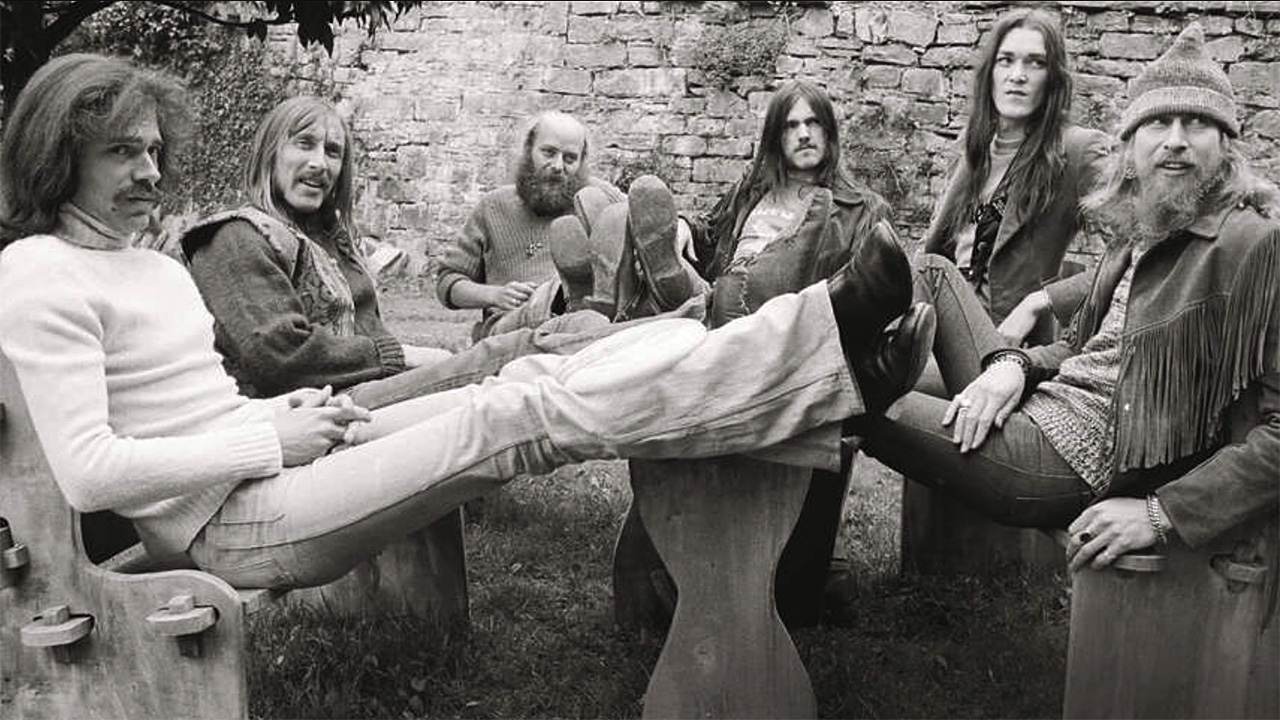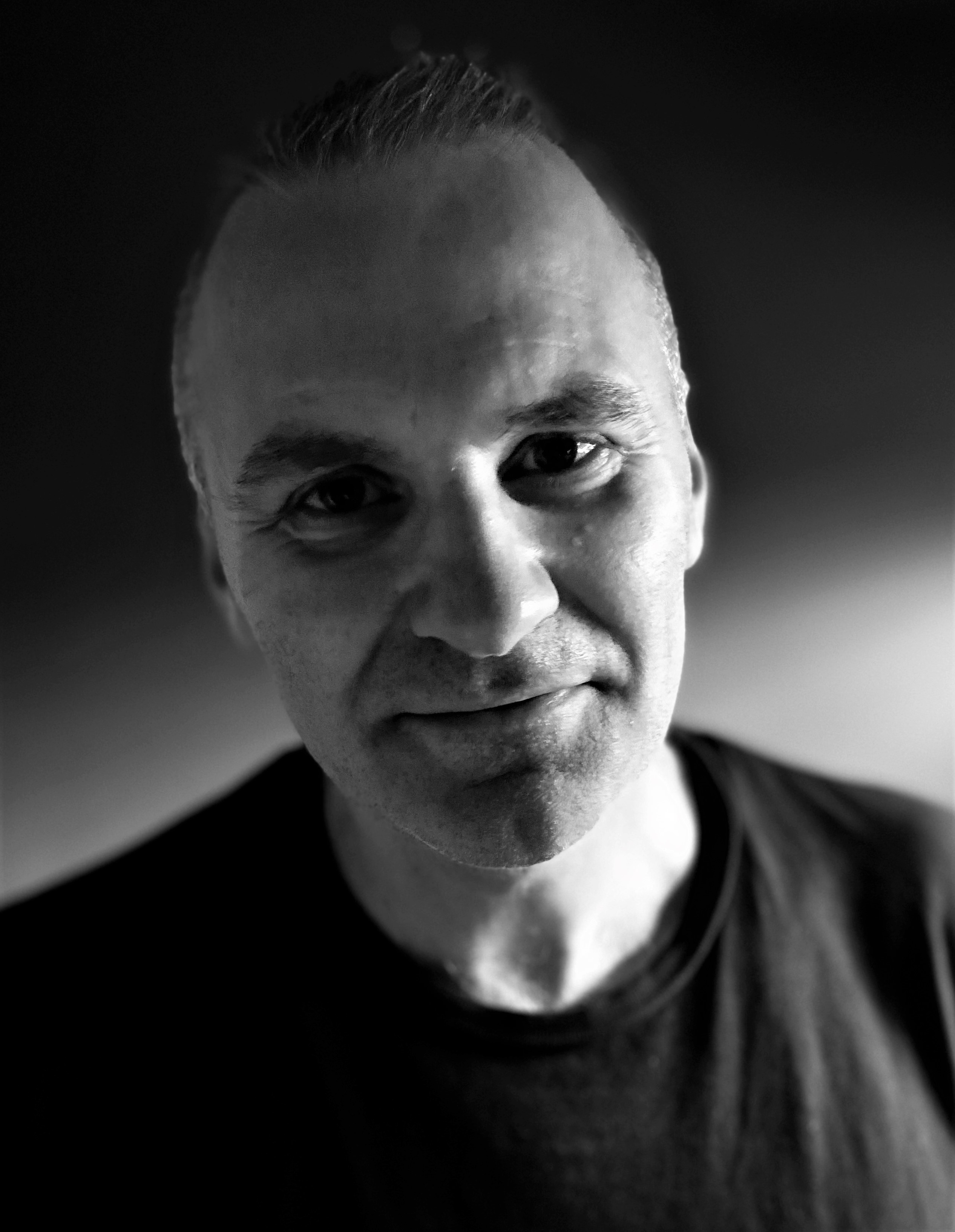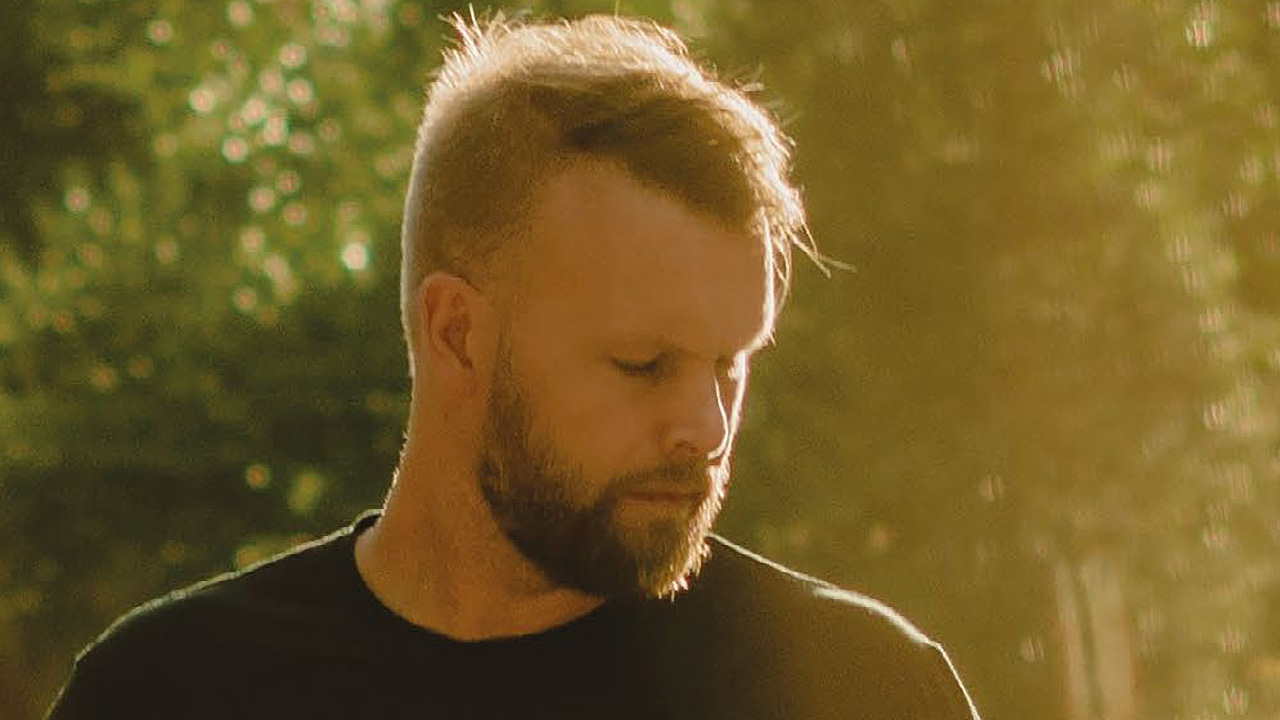“Some of the police were dealing dope! They’re knocking at the door and we stop rolling joints, but the promoter says, ‘They have marijuana for us!’” When America fell in love with an eccentric British prog band
A change of line-up, a change of style and Timothy Leary’s plans for a concert suspended in the air helped made their 1974 album a classic

After the success of their Space Ritual tour, Hawkwind were keen to explore new possibilities for their music. The result was the eclectic and much-loved Hall Of The Mountain Grill, now released as a nine-disc box set including three live shows from 1974. Prog looks back on the making of a classic.
At the start of 1974 Hawkwind were very much a band on the up. They’d just completed their first North American tour, with thousands of fans attending every show, and on returning home had immediately embarked on The Ridiculous Roadshow, playing to sold-out concert halls around the UK.
Dave Brock told the NME it was so named “because all our tours are just so silly and disorganised” – but they’d become a serious force to be reckoned with in the British rock world since the success of Silver Machine in 1972.
They were also in search of a new direction. The US shows marked the retirement of the Space Ritual set they’d been playing for over a year, and they wanted to move away from the science fiction image they’d acquired, particularly as space age poet Robert Calvert had temporarily left the band. Speaking to Record Mirror, drummer Simon King said, “Some might talk of the space image as a serious trip, but we’re really a fun band. We enjoy playing more than anything else.”
The first sign of this looser, lighter approach to their material had come out the previous August. Urban Guerilla had Calvert raving about making bombs in his cellar. It had ended up being withdrawn after a series of IRA attacks, but musically it was upbeat and catchy, even a little rootsy. The single’s B-side, Brainbox Pollution, really rang the changes, with a central riff that was pure old-school rock’n’roll. Used as The Ridiculous Roadshow’s opener, it set the tone for the rest of the set, with other new songs including You’d Better Believe It and It’s So Easy.
But Hawkwind weren’t intent on simply turning into a space rock version of a barroom band. Brock, in particular, was still interested in the possibilities of electronic music and the potential of adding new colours to their sound. Synth player Del Dettmar had already was moving to Canada once his paperwork came through; and after future soundtrack composer Michael Nyman was briefly considered as his replacement, ex-High Tide and Third Ear Band violinist/keyboardist Simon House was recruited – a decision that would have a profound impact on Hawkwind’s next album.
King had already anticipated how it would turn out: “I’d like to see an album with two distinct parts. The first would be a recording of our new live material. The other side would be very much a studio job, something not really suited for stage. We’d be able to utilise synthesisers, tapes and electronic devices to the full.”
Sign up below to get the latest from Prog, plus exclusive special offers, direct to your inbox!
The Ridiculous Roadshow lacked the sci-fi gravitas of the Space Ritual set, but Hawkwind were staging events rather than just gigs. It was particularly true of the London shows they played at Edmonton Sundown on January 25 and 26, 1974. Dedicated to “Timothy Leary, a jailed philosopher,” his partner Joanna Harcourt-Smith introduced the shows with enthusiasm, having declared that Leary considered Hawkwind to be “the most highly evolved band on the planet.” Calvert also made a guest appearance, delivering an astonishing poem about Leary called America.
But the most fun was had by the audience, many of whom had entered a mask-making competition, with a first prize of “a weekend on the road with Hawkwind” – though as Lemmy quipped to Canadian magazine Beetle, “Second prize was two weekends on the road with Hawkwind!” He added: “There was one kid who had a TV set over his head with all sorts of lights and things flashing on and off. I thought he was going to be electrocuted.”
In March the band returned to the US, with The Ridiculous Roadshow transforming into The 1999 Party. It was a bigger tour than the previous year’s, consolidating their established base in the Midwest and also playing further afield, including a show in Nashville in the middle of a tornado.
Brock remembers: “It was a different culture. We did this big place in St Louis, and when I went round to the box office, they were actually taking guns off people, booking them in with these guys’ names on – fucking hell! And believe it or not, some of the police were dealing in dope. The police are knocking at the door and the promoter’s saying, ‘Come in!’ We quickly stop rolling joints, but he says, ‘It’s alright, these guys have got some marijuana for us!’”
The tour also included a benefit gig for Leary at the University of California in Berkeley. Nik Turner had visited him in prison, and the acid evangelist had outlined his plans to escape, which involved Hawkwind being suspended from a helicopter and performing above the prison as a diversion.
Some of it’s all right and some of it isn’t
Dave Brock
After rehearsing at Clearwell Castle in the Forest of Dean, the recording of their next album began in May 1974 at Olympic Studios in Barnes, and concluded the following month.
The first song to emerge from the sessions was The Psychedelic Warlords (Disappear In Smoke), released as a single in August. A Brock composition dating back to 1972, it’s an angry protest song propelled by a fabulously funky riff. On the B-side was a live version of It’s So Easy taken from the January 26 show at Edmonton; given its singalong chorus, many believe it would have made a better A-side – but Brock had apparently gone off it.
Two other live tracks would appear on the album: You’d Better Believe It and Paradox, an aggressive yet melancholic song with a classic stun guitar riff. As with It’s So Easy, the songs were overdubbed significantly by House, who included a bluegrass fiddle hoedown added on the former and sweeping Mellotron on the latter.
The album, punningly titled Hall Of The Mountain Grill in honour of both Edvard Grieg and the band’s favourite Portobello Road café, was released on September 6, 1974. Leading off with the full-length version of The Psychedelic Warlords, it segues into the dramatic, faux orchestral Wind Of Change, which gives definitive notice of Hawkwind having moved into new territory. Once again, House makes a major contribution on Mellotron and violin. As Brock understates: “I suppose it was quite proggy, in a way.”
It was the best studio album I did with Hawkwind. I was quite to the front
Lemmy
All those tracks were Brock compositions, and he also wrote the edgy psych rock number Web Weaver. But it’s the contrasting songs from Hawkwind’s other members that give the album its uniquely eclectic vibe. Nik Turner’s D-Rider (as in ‘Dragon Rider’) is strangely weightless, both surging and floating. Turner said: “I wrote it while I was tripping in the woods near Clearwell Castle playing my oboe. It was basically a fantasy, sort of mixing mythology and astrology – ‘Our course determined by our stars.’ It’s introspective and cosmic; I really like that song.”
House’s instrumental title track is an exquisitely sinister pocket symphony, and proof that Hawkwind could now hold their own with their progressive contemporaries if they so desired. Lemmy was a big fan of it, but less keen on his own contribution, the swampy biker rock of Lost Johnny (with lyrics by journalist Mick Farren). “It was crap, the Hawkwind version,” he told Carol Clerk in The Saga Of Hawkwind. “But Hall Of The Mountain Grill is the best studio album I did with Hawkwind. I was quite to the front.”
Dettmar’s swansong, the proto-ambient track Goat Willow, reflected his desire to move in a more experimental direction. After an attempt to remove the frame from a piano led to him nearly being knocked unconscious by a piece of flying wood, he decided to base his piece around an African kalimba, with harpsichord from House, flutes from Turner and piano from Lemmy.
Resolutely ambivalent, Brock said of the album: “Some of it’s all right and some of it isn’t.” Contemporary reviews weren’t exactly glowing either, with the press increasingly critical of Hawkwind’s refusal to conform to standard rock band criteria. Yet the album peaked at No.16 in the UK and No.110 in the US Billboard chart – an indication of their popularity on both sides of the Atlantic.
Of course, there would be many further ups and downs to come in the band’s journey through the 1970s and beyond. But Hall Of The Mountain Grill was a pivotal album for the band, as confirmed by the 2025 reissue, and remains much loved by fans both old and new.
Joe is a regular contributor to Prog. He also writes for Electronic Sound, The Quietus, and Shindig!, specialising in leftfield psych/prog/rock, retro futurism, and the underground sounds of the 1970s. His work has also appeared in The Guardian, MOJO, and Rock & Folk. Joe is the author of the acclaimed Hawkwind biographyDays Of The Underground (2020). He’s on Twitter and Facebook, and his website is https://www.daysoftheunderground.com/.
You must confirm your public display name before commenting
Please logout and then login again, you will then be prompted to enter your display name.





